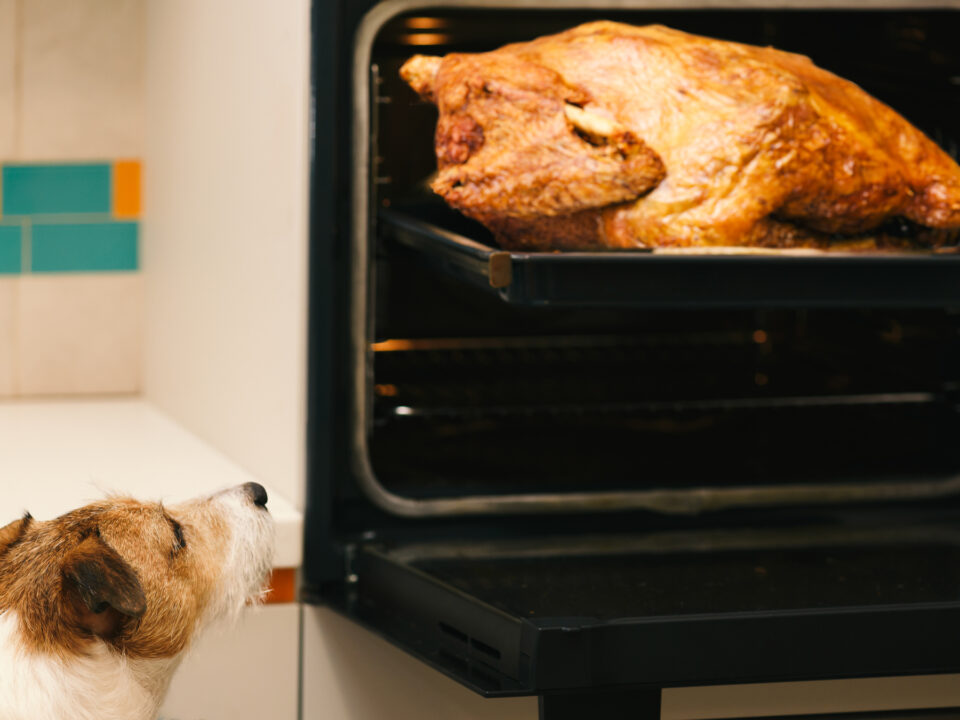8 Reasons Why Your Dog is Throwing Up in Sewell, NJ

Why Do Dogs Eat Grass and Vomit?
June 9, 2020
5 Benefits of Spaying or Neutering Your Pet in Sewell, NJ
June 15, 2020Has your dog started vomiting for no known reason? Does he throw up often? Vomiting is not as common in dogs as it is in cats, and it’s usually a sign of an underlying problem. Some of these issues are easy to resolve on your own, but most of them will require a trip to the vet for diagnosis and potential treatment.
Check out the list of possible reasons your dog may be vomiting below.
Bacterial or Viral Infections
Infections are one of the most common causes of vomiting in dogs. If your dog comes down with a bacterial or viral infection, he may begin throwing up. He may also show signs such as loss of appetite, weakness, and lethargy related to his vomiting.
Dogs with acute illnesses like this may have other symptoms as well. Some may have respiratory symptoms like coughing, sneezing, runny eyes and nose, and trouble breathing.
Others may run a fever. If your dog has any of these symptoms along with a fever, take him to the vet right away.
Obstructions or Toxic Substances
Unfortunately, dogs sometimes eat things they shouldn’t. If your dog eats part of a toy, a stick, or a household object, he may develop a bowel obstruction. These are painful and very dangerous conditions that require surgery in order to treat. If left untreated, bowel obstructions are fatal.
Dogs also sometimes ingest toxic substances from around the home. If your dog eats a plant, chemical, or food item that is toxic to dogs, he will likely start vomiting. He will probably also show severe signs of illness as well. You should take your dog to the vet immediately if you think he ate something toxic.
Parasites Can Cause Your Dog to Throw Up
Parasites don’t always cause vomiting in dogs, and some dogs may have parasites for a long time without ever showing any symptoms. However, in some instances, parasites do cause dogs to vomit more frequently over time. If you notice your dog vomiting frequently but he doesn’t seem to be sick otherwise, this could be a sign that he has some type of parasite.
When scheduling a vet visit for suspected parasites, let the front desk know ahead of time why you’re coming. They’ll likely instruct you to bring a stool sample from your dog for extensive testing.
Diet or Food Intolerance
If you’re not feeding your dog a high-quality food, his frequent vomiting could be related to the food he’s eating. He may also be eating a type or flavor of food that doesn’t sit well with him. Your vet may suggest trying a different brand of food or switching to dry instead of wet (or vice-versa).
Some dogs also have food allergies and intolerances, just like humans do. Your vet can run tests to determine whether or not your dog has some intolerances or allergies. Others may require simple observation on your part. If you think your dog’s food could be the culprit, you may want to try changing it at home before scheduling a vet visit—as long as the vomiting isn’t severe.
Liver or Kidney Failure
Dogs with underlying illness and dogs who are advanced in age may suffer from liver or kidney failure. When these organs start to fail, dogs are much more likely to become nauseated and to vomit because of it. They may vomit up food, but they may also throw up bile as well.
Often, dogs with liver or kidney failure will be very thirsty. They may also have severe diarrhea along with other symptoms.
Medication Can Cause Dogs to Throw Up
Does your dog take a regular medication, or has he recently taken one for an illness or injury? If so, this could be what is causing him to vomit. Some dogs vomit from medications as simple as flea and tick treatments, and some may be unable to handle antibiotics without throwing up.
If your dog is having severe vomiting spells from his medication, you may need to ask your vet if there are any other options. However, if your dog only throws up a few times from the medication, the vet will likely recommend you continue with it and try feeding your dog a bland diet until his stomach is settled again.
Pancreatitis
Some dogs are more likely to develop this inflammation of the pancreas more often than others. In some cases, it can be breed or size related. Dogs who have had pancreatitis before are more likely to suffer from it again. Table scraps are one of the leading causes of pancreatitis flare-ups in dogs.
Dogs with pancreatitis vomit a lot and have little to no appetite. They may become dehydrated very quickly and will require vet care. Luckily, with the help of a vet, your dog can usually get back to normal in just a few days after a mild bout of pancreatitis.
Heatstroke-Related Vomiting
When dogs are left outdoors or in hot cars for too long, they can develop heatstroke. Heatstroke can quickly become fatal if left untreated. However, if you notice the signs and symptoms soon enough, you can take care of your dog before he reaches this dangerous point.
Drooling and excessive panting are the first signs of heatstroke. If your dog has gotten to the point that he is vomiting due to the heat, he is very sick. Vomiting combined with overheating will make him dehydrate very quickly. He will need emergency vet care.
Visit Your Vet If Your Dog Keeps Throwing Up
Other than the possibilities on this list, there are many other causes that can contribute to your dog’s vomiting. If you notice your dog throwing up and aren’t sure what might have caused it, it’s a good idea to call your vet. With a few simple tests, the vet will be able to determine the cause of the vomiting. The vet can also let you know if your dog needs medication or IV fluids to help combat symptoms, illness, or dehydration related to vomiting.
Always work with your vet whenever possible to handle problems related to illness and injury in your furry friends. At Pet Check Urgent Care, we specialize in urgent animal care, so if your dog is throwing up in Sewell, NJ or the surrounding areas and you don’t know why, we’re here to help – no appointment necessary.




